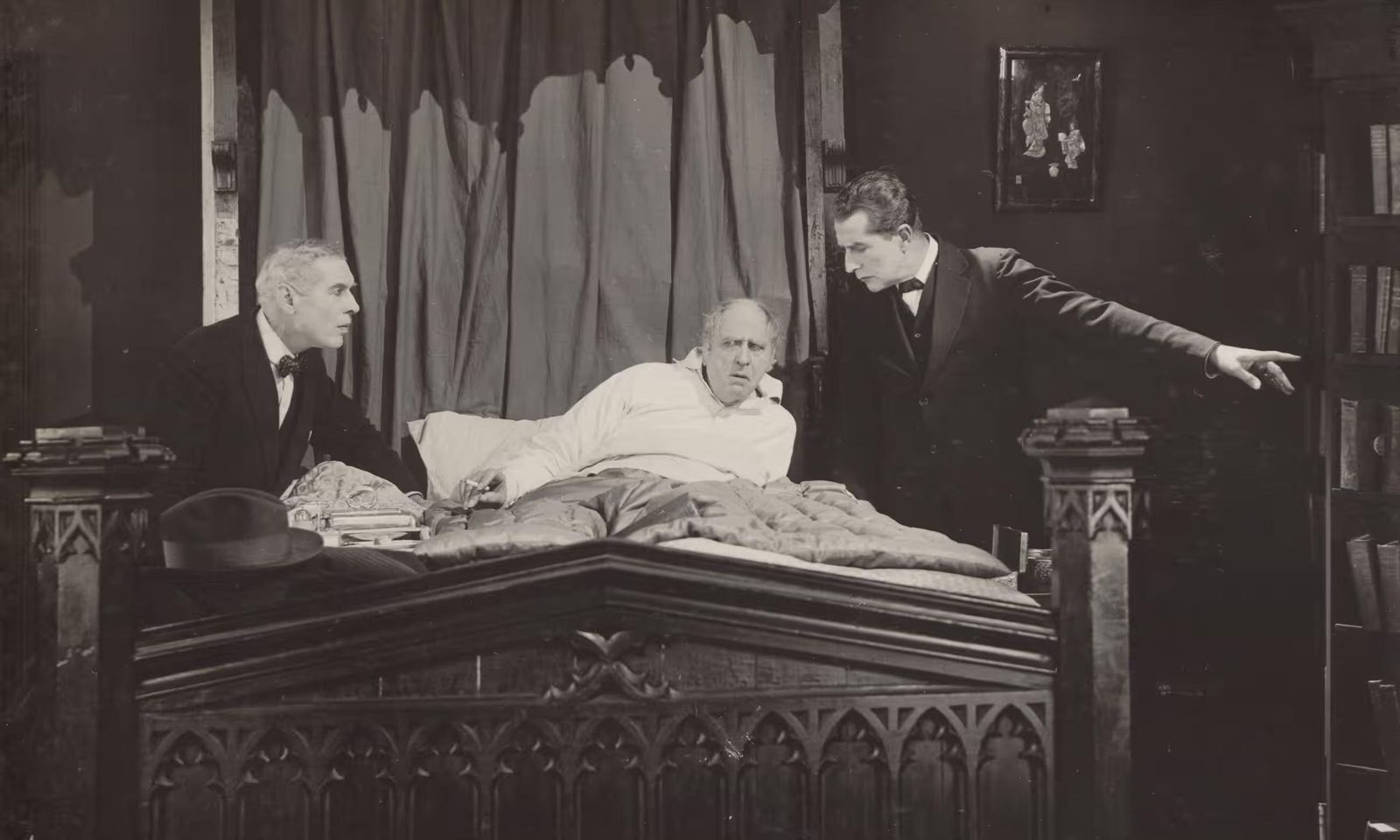The BFI National Archive has restored a silent Sherlock Holmes film, starring Arthur Conan Doyle's favourite eille norwood impersonator of the renowned detective, to be broadcast for the first time since it was released in 1922.
The Golden Pince-Nez, a renowned instance of Sherlock Holmes detection, is predicated on a Conan Doyle short story that debuted in the Strand magazine in 1904.
It was one of many cinematic adaptations in which Norwood played the role of the expert investigator who pieces together the truth from the smallest hints.
Conan Doyle said of him: “His wonderful impersonation of Holmes has amazed me. Norwood had that rare quality which can only be described as glamour, which compels you to watch an actor eagerly even when he is doing nothing. He has a quite unrivalled power of disguise.”
The restoration world premiere will be held on 16 October as part of the BFI London film festival.
Bryony Dixon, the curator of silent film at the BFI national archive, told the Guardian that Norwood had even discussed the role with Conan Doyle and that, while later acclaimed performers included Basil Rathbone and Jeremy Brett, Norwood was a serious stage actor who immersed himself in the character. “I think he went a bit ‘method’ with it and really studied the stories and the character.”
She described the Golden Pince-Nez film as “fairly close” to Conan Doyle’s original as his stories were licensed to Stoll Pictures on condition that the screen adaptations would follow his plots.
“It involves Holmes using his classic powers of deduction,” Dixon said. “[In] a complicated plot … there’s been a murder … of a professor’s secretary and Holmes is called in. They have found a pair of women’s pince-nez glasses [clutched by the victim] and he deduces her exact description just from her glasses.”
In the original story, Holmes immediately deduces that the glasses were “snatched from the face or the person of the assassin”, adding: “That they belong to a woman I infer from their delicacy … My own face is a narrow one, and yet I find that I cannot get my eyes into the centre, or near the centre, of these glasses. Therefore the lady’s eyes are set very near to the sides of the nose.”
In addition to two features, Norwood produced 45 episodes, each lasting up to 30 minutes, between 1921 and 1923, including The Golden Pince-Nez.
A Scandal in Bohemia, in which Holmes falls in love with a woman against his better judgement, and The Final Problem, in which Holmes confronts his arch-enemy, Moriarty, will be shown alongside the premiere.
These are the first titles in the BFI’s “mammoth multi-year restoration project”, Dixon said, noting that Norwood’s films were well-received in their day by audiences who flocked to the cinema back then in their millions. “This was culturally more like us watching TV,” she said.
The BFI national archive boasts the world’s largest film and television holdings. It acquired the original negatives for the Holmes series in 1938, and in the early 1950s it duplicated the two-reel camera negative of The Golden Pince-Nez on to safety stock before the original decomposed.
“The quality is pretty much as good as it gets,” Dixon said of the restoration, adding that it was close to the way the original audiences saw it.
Roger Johnson, the editor of the Sherlock Holmes Journal, said: “I am very eager to see the restored print of The Golden Pince-Nez. What would have impressed Conan Doyle about Norwood was the application that he put into his acting. He’d obviously made himself very familiar with the original stories.
“Conan Doyle said he had an absolute mastery of disguise and there are photographs of Norwood in convincing disguises. You can see why his Watson [played by Hubert Willis] is astonished that it’s Holmes underneath. It was the way he held himself. It’s all very well wearing different clothes and putting on a false nose but to take on the movement, the posture – that as much as anything is what was convincing. It did impress Conan Doyle.”
The premiere will be hosted at Alexandra Palace with a specially commissioned live score, in a new partnership between the BFI and the Royal Academy of Music.
The restoration project has been made possible under an agreement between the BFI and Andrew Lloyd Webber’s The Really Useful Group.








.svg)

